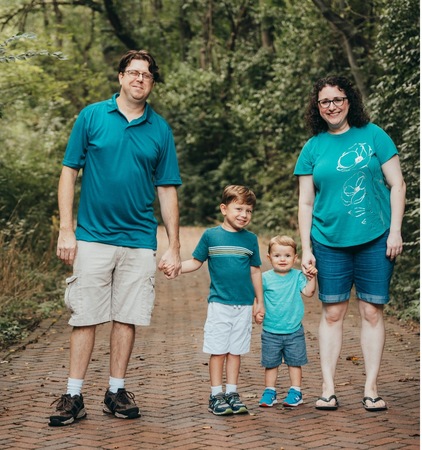Kacey Platky
Capstone
Capstone Project Committee: Nancy Callanan, M.S., CGC, James Evans, MD, Ph.D., Sat Gupta, Ph.D. (Statistical Consultant), Lisa Susswein, M.S., CGC
Introduction: Breast cancer is the most common cancer among African American women, and is the second leading cause of cancer death in this population. While the prevalence of breast cancer is higher among Caucasian women, African American women have a higher mortality rate. Mutations in the BRCA1 and BRCA2 genes cause approximately 5-10% of breast cancers, with similar prevalence rates in both populations. Open family communication is critical for women undergoing testing for these mutations because they, not physicians, are responsible for communicating results of the test to relatives, who may also be at risk and thus benefit from results. Methods: In this study, we compared a population of African Americans and Caucasians with regard to what relatives they inform of their BRCA1/2 mutation status.
Results: Our findings indicate that African Americans are less likely to inform male relatives of their test results than Caucasians. Respondents from both groups reported that they were more likely to share test results with a female relative to inform her of her risk, and more likely to share with a male relative out of a “sense of duty.” The most common reasons for not sharing with a relative are that the relative is too young or that the relative is male.
Conclusion: Given these results, genetic counselors should continue to emphasize risk to family members and the need to share results, especially when talking to African American women in regard to their male relatives.
Since Graduation

Kacey’s first position after graduation was a clinical role at the University of Louisville in Kentucky. The role started as a primarily pediatric genetic counselor (including metabolics), but also involved covering prenatal and cancer genetics clinics as well. Over time this evolved and when she left the University of Louisville she was one of the main genetic counselors providing services to a maternal-fetal medicine office. She also worked closely with the University of Louisville’s cytogenetics lab to write their microarray reports.
After 10+ years in clinical practice it was time for a change, and she joined the laboratory genetic counseling staff at Progenity, Inc. in January 2018. She enjoys that this position still involves talking to patients, while also learning about and working on the laboratory side of the field. Kacey was heavily involved in bringing licensure for genetic counselors to Kentucky and serves as Chair of the Kentucky Advisory Committee for Genetic Counselors.
Kacey has lived in Louisville since moving here after graduation from UNCG. She met her husband through co-workers at her UofL job and they have two boys, Jake (2 years) and Ben (5 years).